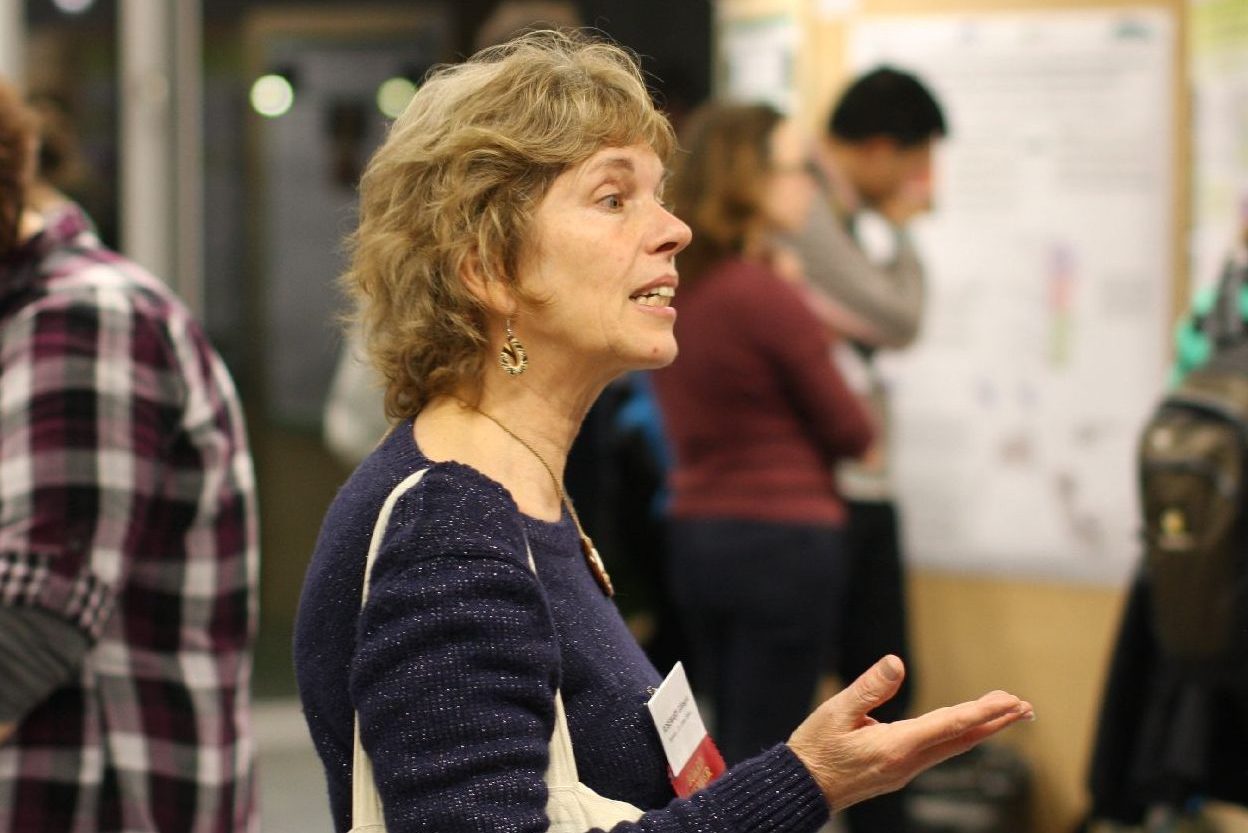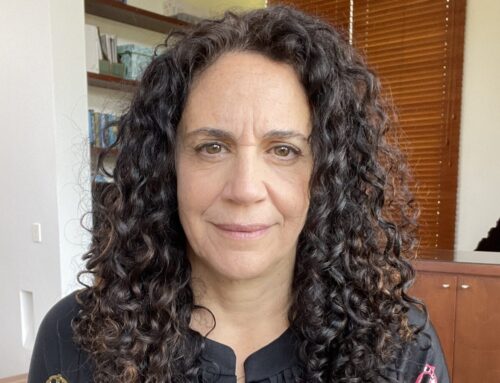We’re excited to announce Dr. Rosemary Gillespie as the recipient of the International Biogeography Society’s 2019 Alfred Russel Wallace Award!
Dr. Gillespie is best known for her work on adaptive radiations across space and time. To draw a quote from one of her papers: “integration between the explicitly temporal theories of evolutionary change and explicitly spatial theories of ecological change has proved extremely difficult to reconcile.” Her research represents some of the very best attempts to do this. She is a true biogeographer in that she works and thinks across broad spatial scales. What makes her exceptional, however, is that she works at all scales. She is one of the few researchers who is conversant with the fields of biogeography, macroecology, macroevolution, and community ecology. She has exceptional knowledge of natural history, born of spending countless hours in the field. However, the innovative framework that has led her to many discoveries has been the use of hotspot archipelagos and especially the archetypic one, i.e. Hawaii, where islands sequentially appear and are of different ages. Dr. Gillespie has been the leader in studying the progress of adaptive radiation through time by comparing these islands.
Most of Dr. Gillespie’s biogeographical research has been on Hawaiian spiders. Her original papers clarified the concept of adaptive radiation by demonstrating convergent evolution (resulting in similar radiations) on different islands and by showing how non-adaptive radiations (i.e., the production of ecologically similar species) result from both dispersal between islands and vicariance within them. One important discovery to emerge out of this work was that intermediate aged islands actually contain more species than those younger or older, leading to the concept of species overshoots, which she suggested was a result of reduced competition early in diversification, an intuition subsequently modeled by Gavrilets and others. More recently, she has made the interesting connection with productivity, given island productivity changes with age (this resembles Whittaker et al.’s well known general dynamic theory of island biogeography). She has applied her findings to other contemporary issues in adaptive radiation, such as the role of plasticity in enabling diversification (color that changes with age in spider species in young radiations become converted to color differences between species in older radiations; she has also investigated effects of diet on spider color), the role of genetic polymorphism within species, and the role of hybridization in fueling diversification.
Dr. Gillespie has extended her work to other island systems across the entire Pacific, French Polynesia, Fiji, Pohnpei, and Kosrae, among others. First, she has emphasized the filtering effect that dispersal has on community structure. For example, she has considered difficulties mutualists have in becoming established and how these difficulties might be overcome, how limited dispersal is a requirement for in situ radiations, the differing roles for establishment and dispersal per se in colonization, the evolution (or not) of specialists from generalists (generalists more easily establish), and correlates of endemism with distance. Second, noting that the Hawaiian archipelago may be unusual, she has studied radiations in other hotspot archipelagoes, confirming the general patterns and getting novel insights from the exceptions. Her focus is now on those cases where a strong progression rule (i.e. older islands do contain older clades) is followed, and the use of genomics to separate possible explanations for why back-colonization of older islands
is apparently rare.
Dr. Gillespie has been very active in teaching and mentoring. She has supervised more than 16 PhDs and 17 post-doctoral students. She is heavily involved in a large collaborative effort to document Hawaii’s biodiversity. She has published more than 160 scientific papers and book chapters. She is the leading editor of a pivotal publication for island biology, i.e. the Encyclopedia of Islands. She has already served as president for the International Biogeography Society, the American Genetics Association and the American Arachnological Society, as well as receiving several awards.
Rosemary Gillespie will be presented with the 2019 Alfred Russel Wallace Award at the upcoming 9th Biennial Conference of the International Biogeography Society. Come join us and see her plenary talk at IBS 2019 Malaga next January 8-12!







